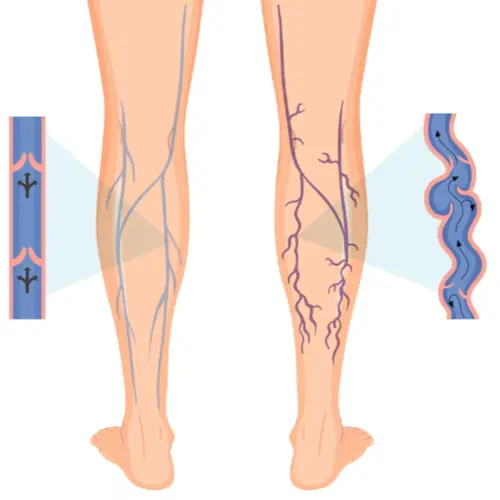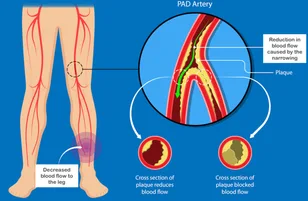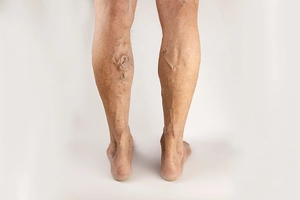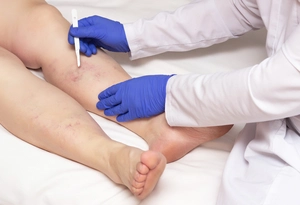
Circulatory. Pathways. Healthier
Navigating Your Path to Advanced Vascular Solutions for Lifelong Health
At Verma Hospital, where your medical needs are fulfilled with careful care and accuracy, receive first-rate vascular surgery. Our surgical team, headed by the renowned Dr. Praveen Verma, makes sure you receive the best care possible by fusing skill and compassion. Treatment for diseases like varicose veins, aortic aneurysms, and peripheral artery disease involves sophisticated vascular and endovascular surgical techniques. As a leading vein specialist, Dr. Verma is dedicated to providing the best results possible, offering cutting-edge vascular solutions that prioritize your health and quality of life, and assisting you on your road to recovery. Trust Verma Hospital for exceptional vascular care.

What Is Vascular ?
The circulatory machine, additionally referred to as the vascular apparatus, is a complicated network of blood vessels that carries blood, oxygen, and vitamins at some point of the body. It is composed of arteries, veins, and capillaries, all of which can be important for preserving the body’s best health and features. Growing older, turning into greater overweight, and developing persistent situations like kind II diabetes are all factors that are contributing to the rising prevalence of vascular problems. Heart problems aren’t the best issues that affect your circulatory machine. It comes with the value of doing away with waste products out of your frame and turning in nutrients and oxygen to your cells and tissues.
Vascular disorders, such as varicose veins, may result in significant and broad impacts. For example, neurological illness may lead to strokes, while plaque in the coronary arteries, a form of plaque buildup, can cause major heart disease. Anxiety, inflammation, as well as amputation in the legs may be a consequence of PAD. The management and treatment of blood vessel conditions tend to involve prescription drugs, modifications to lifestyle, and on rare occasions operation. Preventing and handling those illnesses requires adhering to a good eating plan, taking regular physical activity, and eliminating tobacco. For individuals with vascular disorders to experience fewer consequences and a higher quality of life, early detection and treatment are essential.




Types of Vascular :
- Atherosclerosis: The most prevalent type of vascular illness is atherosclerosis. It happens due to the creation of plaque, which comprises of various substances, lipids as they and cholesterol inside the artery walls. Plaque inhibits blood circulation and reduces the passageways.
- Peripheral arterial disease : a disease that affects the veins in the lower body and toes to become smaller, resulting in anxiety, pain, and weakness. It can lead to an amputation or gangrene condition under extreme conditions.
- Cerebral vascular illnesses: the disorder that increase the risk of stroke by shrinking the arteries in the neck, which are the primary blood vessels entering the cerebrum to the brain.
- Deep vein thrombosis (DVT): This is a blood clot that forms in a deep vein, usually in the legs. DVT is dangerous because a clot can break loose and travel to the lungs, causing a pulmonary embolism.
- Pulmonary embolism (PE): This is a blood clot that lodges in an artery in the lungs, causing shortness of breath, chest pain, and coughing up blood. In severe cases, it can be fatal.
- Varicose veins: These are twisted, enlarged veins that appear just under the skin. Caused by weak valves in the veins allowing blood to flow backward, they are usually not dangerous but can cause pain, achiness, and swelling in the legs.
Causes Of Vascular :
- Atherosclerosis: the formation of cholesterol causes valves to narrow and reducing blood circulation.
- Blood Clots: These activities may develop over a variety of reasons, affecting veins or arteries.
- Irritation: Arterial inflammation, a swelling of the blood vessels, causes damage to them.
- Trauma or Injury: A physical injury causes your risk of acquiring a medical illness.
- Increased cholesterol levels: Affects the outer layer of vessels in the body via placing stress on them.
- Excessive LDL Cholesterol: the creation of plaque can be caused by raised levels of LDL cholesterol.
- Diabetes: Impairs mobility and damages blood vessels.
Sign & Symptoms Of Vascular :
- Pain: This can include cramping, especially in the legs (claudication), which can get worse with movement and get better with rest.
- Numbness or weakness: Especially where it hurts, usually in the hands or legs.
- Coolness or change in pores and skin tone: Reduced blood circulation may cause skin seem colorless or grayish.
- Sores or ulcers: Wounds that do not heal, often on the legs or feet.
opaque, thickened toenails: More common in elderly people. - Poor wound healing: Especially in the feet or legs.
- Gangrene: The absence of plasma supplies resulting in tissue death.
- Impotence: Insufficient blood circulation may additionally trigger erection dysfunction in men.
- Chest ache: If the diagnosis is a coronary artery disease (CAD), abdominal discomfort may be present.
- Stroke-like signs: Such as unexpected weak spot, trouble speaking, or imaginative and prescient issues (in circumstances of carotid artery sickness).
- High blood pressure: particularly if it’s difficult to manage.